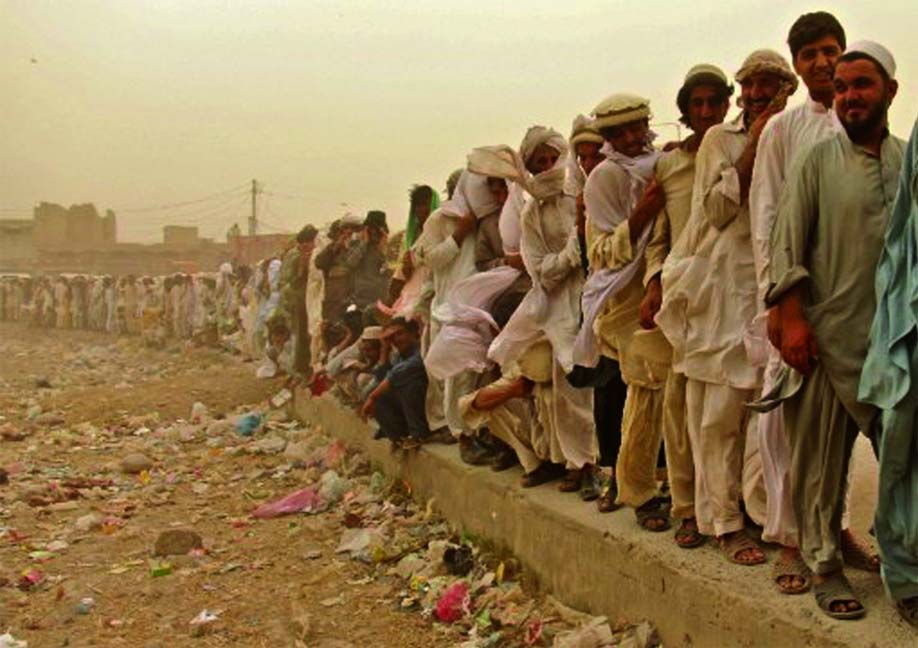
CNN, Pakistan :
The road to Bannu city in the northwest of Pakistan is a journey through the elements.
Harsh wind and rain make way for bursts of sunshine in June, a month of typically oppressive heat when illnesses such as diarrhea and typhoid are common, alongside the ever-looming specter of polio.
It is in this stifling heat that hundreds of thousands of men, women and children are fleeing their homes in North Waziristan, which borders Afghanistan, to Bannu and other neighboring regions. The mass exodus began after the Pakistani army launched a full scale offensive against militants on June 15 called Zarb e Azb, or “The Strike of The Prophet’s Sword.”
While the Pakistan army has been releasing a daily stream of information regarding the operation, it has come under severe criticism for failing to notify the residents of North Waziristan of an impending operation.
A curfew in North Waziristan crippled the movement of individuals in the region. Military sources told CNN on condition of anonymity that the curfew had been imposed to prevent militants from fleeing, however what resulted was utter chaos for local residents.
“We waited for the signal to leave while taking shelter under trees,” Javed Wazir, a local from the North Waziristan town of MirAli tells CNN in anguish. “The bazaar was under fire from mortar shells and our women and children were crying in despair.”
On June 18, three days after the operation officially started in North Waziristan, the army finally lifted the curfew allowing movement out of the area.
What started as a mass exodus of the region’s population has fast accelerated into a humanitarian crisis.
According to Arshad Khan, the director of the FATA Disaster Management Authority, the number of people who have fled the military operation has now reached almost half a million, with 455,000 people scattered across various parts of Northern Pakistan.
In a sports complex in the heart of Bannu city, a dust storm is creating havoc at the city’s largest food distribution point for those seeking shelter.
Until Tuesday it was the only food distribution point for the thousands of needy people in Bannu and its surrounding regions, and was the scene of protests airing the frustration they have experienced over the past two weeks.

